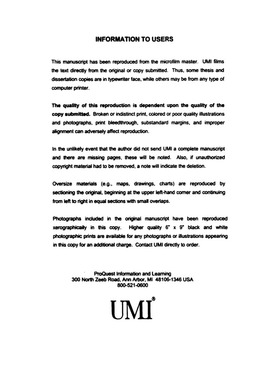| dc.contributor.advisor | Pfau, Michael, | en_US |
| dc.contributor.author | Ku, Gyotae. | en_US |
| dc.date.accessioned | 2013-08-16T12:18:29Z | |
| dc.date.available | 2013-08-16T12:18:29Z | |
| dc.date.issued | 2002 | en_US |
| dc.identifier.uri | https://hdl.handle.net/11244/425 | |
| dc.description.abstract | In addition, the two path models indicated that candidate website agenda in the campaign initial phase had some significant direct agenda-setting impact on the public's agenda, and the agenda-setting impact persisted throughout the 2000 presidential campaign period. This finding might indicate that a political candidate who wants to run a website needs to focus on direct website strategies to reach online users, as well as provide news releases for the traditional news media. Finally, the present study employing intermedia agenda-setting focus points out that today news media in a multi-channel communication environment still have a high content uniformity. Thus, this study might imply that the amount of political information increased by new technologies does not guarantee the quality of news content. However, the present study did not support the amount of news output as a predictor variable to examine the level of news consonance, and did not find any consistent relationship between the level of consonance and the level of agenda-setting function. | en_US |
| dc.description.abstract | The study had several implications of political candidate websites on political dialogue. First, this study revealed the website campaigning can be used as a useful tool for an effective PR, since the campaign agenda of candidate websites became the subsequent agenda of the traditional news media. Second, as website agenda are actively involved in the traditional media agenda, the website agenda is more likely to be associated with public agenda. As with the shaping of public opinion during the election campaign period, this study also revealed that the website agenda had greater agenda-setting impact on the public than any other media examined in this study. Thus, another theoretical implication regarding agenda-setting function is that online users exposed to candidate websites are more likely to learn campaign agenda than traditional media users. | en_US |
| dc.description.abstract | The present study was designed to examine the impact of website campaigning as new media on the traditional news media agenda and the public opinion during the 2000 presidential election campaigning. Based on an intermedia agenda-setting approach, this study also investigated the issue of news consonance by focusing on news media's structural value scheme in setting agenda salience. In addition, the relationship between news consonance and news media's agenda-setting impact was explored. This study used diverse statistical techniques, such as Spearman's rho correlation, partial correlation, the Rozelle-Campbell baseline, path analysis, etc., to assess the hypothesis and questions. | en_US |
| dc.format.extent | xii, 146 leaves : | en_US |
| dc.subject | Presidents United States Election 2000 Press coverage. | en_US |
| dc.subject | Internet in political campaigns United States. | en_US |
| dc.subject | Political Science, General. | en_US |
| dc.subject | Mass Communications. | en_US |
| dc.subject | Business Administration, Marketing. | en_US |
| dc.title | Intermedia agenda-setting in the 2000 presidential campaign: The influence of candidates' websites on traditional news media. | en_US |
| dc.type | Thesis | en_US |
| dc.thesis.degree | Ph.D. | en_US |
| dc.thesis.degreeDiscipline | Department of Communication | en_US |
| dc.note | Adviser: Michael Pfau. | en_US |
| dc.note | Source: Dissertation Abstracts International, Volume: 63-01, Section: A, page: 0015. | en_US |
| ou.identifier | (UMI)AAI3040841 | en_US |
| ou.group | College of Arts and Sciences::Department of Communication | |
